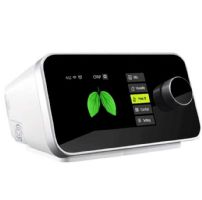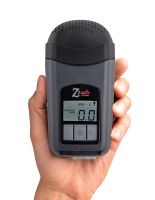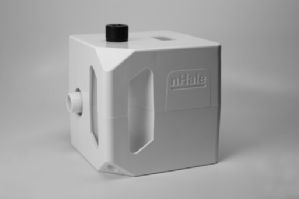 Written by Brittany Ferri, OTR/L
Written by Brittany Ferri, OTR/L
We all know that the Coronavirus disrupted the medical industry. However, what comes as a surprise is that the virus found a way to interrupt the supply of CPAP Machines, but as they say: bad luck never comes alone!
To add insult to injury, in August 2021, thousands of CPAP machine users across the nation were left without devices after Philips Respironics issued a voluntary recall of several of their products. This led to a surge in orders for the ResMed AirSense and the AirMini, which caused a shortage of those two devices.
The good news is that RehabMart has several CPAP machines available for purchase, so you can stay connected to the treatment you need within the comfort of your own home.
First... What CPAP Machines are Available?
Why is there a shortage of CPAP machines?
It’s difficult to not know where you will get your CPAP machine. We understand the frustration and concern you must be feeling. That’s why our team has been hitting the pavement to source CPAP machines and even make some available for preorder.
 | iBreeze Auto CPAP / APAP Machine with Heated Humidifier View Product |
The iBreeze is a highly advanced device that functions as both a CPAP and an APAP. CPAP machines are the go-to option for sleep apnea since they offer fixed amounts of pressure. However, when the APAP feature is engaged, the device automatically provides pressure to the user.
This device has a built-in humidifying system, which prevents users from experiencing dryness in the nasal passages and throat. The iBreeze also has a highly sensitive pressure release sensor that allows users to more gently exhale while sleeping. Such a feature allows for a more natural breathing experience. The intuitive ramp settings on this device offer just the right amount of air therapy for the person using it. These features combined with clear, touch-screen imaging make the iBreeze an excellent choice for anyone needing a dual CPAP/APAP.
 | Z2 Auto APAP / CPAP System by Breas Medical View Product |
This version, the Z2 Auto APAP, is another compact device that offers both CPAP and APAP technology to users who travel frequently. This offers many of the same benefits as the Z2 CPAP machine in that it can be used with universal masks. The Z2 Auto also pairs with a sleep log app that helps users track data to send to their doctor or other healthcare provider. Users can even take advantage of this travel device while on a plane flight, since it’s quiet and FAA-compliant. The Z2 Auto offers mobile data storage, so you can feel confident keeping all your information in one place.
 | nHale Bi-Level PAP System by Nanotronics | Made in the USA! View Product |
Compact yet powerful, the nHale Bi-Level PAP machine offers spontaneous respiration for an oxygen experience tailored to your needs. With spontaneous respiration, the pressure is triggered by a users respiratory patterns. The nHale increases the pressure during inhalation to keep airways open while lowering the pressure during exhalation to maintain the airflow. When needed, the nHale can also be set to CPAP mode to provide mandatory respiration at a set interval.
For safety, the nHale is equipped with alarms that alert to a number of things such as general system failures and failure to achieve the desired therapy pressure. It also allows for clinicians to follow medical protocol for non-invasive ventilation, making it suitable for hospitals, clinics, and any other facility with a large volume of patients. The nHale is reusable, cost-effective, and the perfect Bi-Level PAP machine for private home use and clinical settings.
We mentioned earlier that the voluntary recall contributed to the shortage of CPAP machines, since there was a spike in demand for other devices that had not been recalled. However, this is not the only reason for the current CPAP machine shortage.
COVID-19 is a viral respiratory disease that can cause patients to experience severe difficulty breathing. As a result, hospitals were using devices called mechanical ventilators, which continuously pump oxygen into the lungs in the event that someone cannot breathe independently. In terms of respiratory support, ventilators are several steps up from CPAP machines, since they require someone to insert a breathing tube down the throat and are used 24/7 until a person recovers.
The presence of this virus has interrupted the manufacturing process for many products across all industries due to understaffing, mandatory quarantines, and remote work periods. But the medical device industry is one crucial area that has felt its impact. When hospitals were experiencing a major surge in COVID patients who needed intensive medical care, there was a mass shortage of ventilators to provide breathing support for these patients. As a result, many hospitals were in dire straits and began using CPAP machines to help manage COVID when there were not enough ventilators available. The FDA even recognized this and temporarily allowed CPAPs as a substitute for ventilators.
While this proved to be a life-saving decision for many people hospitalized during the shortage, research does not support the long-term use of CPAPs for COVID. Studies have shown that it can be effective in short hospitalizations, but it is associated with a higher death rate in patients who have been hospitalized for more than 7 days.
This substitution has also led to speculation about whether or not CPAPs could be used to prevent COVID-19. In order to cut down on misinformation, many organizations (specifically medical device companies) have issued statements that CPAPs are not effective in preventing COVID-19. They are devices intended for the treatment of sleep apnea. All individuals should follow the CDC guidelines for COVID-19 prevention.
While COVID has certainly had an impact, the Philips recall was the largest reason for the CPAP machine shortage. In July 2021, Philips Respironics issued a Class I recall after they determined there was a “reasonable chance cause serious health problems or death.” This recall was for certain CPAP, BiPAP, and ventilator models, which were found to contain foam that breaks into miniscule pieces and can be inhaled. This places all users at a significant risk for respiratory complications.
Delays in receiving device components were also partially to blame for the shortage. Resins and computer chip modules found in each of these devices were particularly difficult to find over the past year. Additionally, transportation bottlenecks impacted nearly every industry, which made it even more difficult to get these materials in the right hands.
This shortage is remarkably major, since Philips was previously the primary supplier of all CPAP machines. Since the recall, CPAP users have been ordering any machine they could find, since it is not advised to go without breathing support overnight if you have sleep apnea.
While it’s difficult to predict exactly when stock will return to normal, Philips has developed rough timelines September 2022.
My father has a Philips Dreamstation. When he inquired about the timeline, a Philips representative gave him the same answer.
It may be difficult to find the exact CPAP you’re looking for right now, but there are options to get you a device. At RehabMart, we have several options available and are working to keep you in the loop as new updates come to light. In the meantime, take good care of your existing equipment to get the most use out of it, and contact your healthcare provider if you have any specific medical questions about your device.

Brittany is an occupational therapist who has worked in a variety of rehab facilities. She has always expressed an interest in patients’ internal motivation for therapy and the use of assistive devices, which led her to pursue a PhD in Integrative Mental Health. This research-based training has also led her to develop her writing career to educate patients of all ages on how to improve their health. Brittany has published four books, written over 300 articles, and has been quoted in media outlets such as WebMD, Healthline, and NBC News.